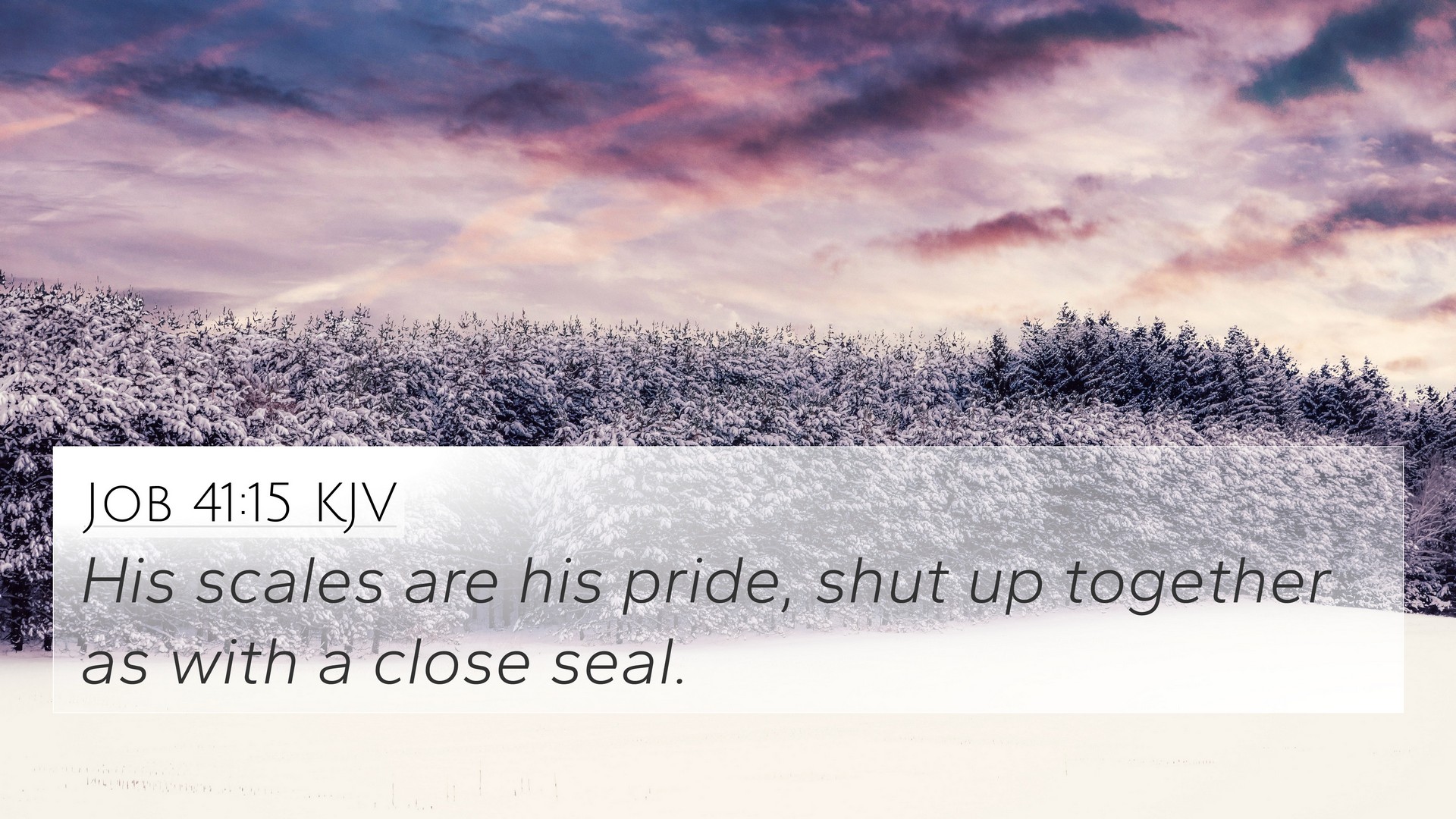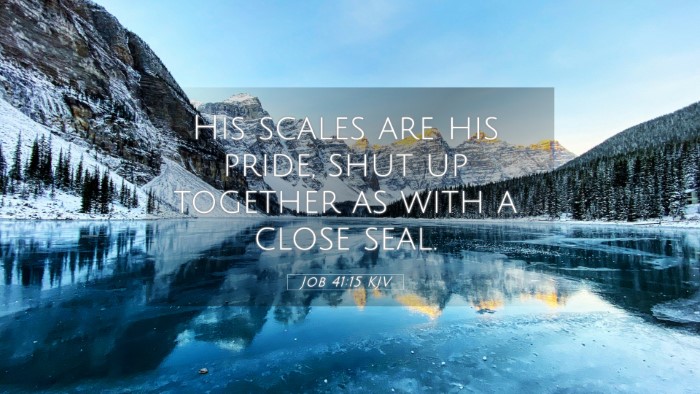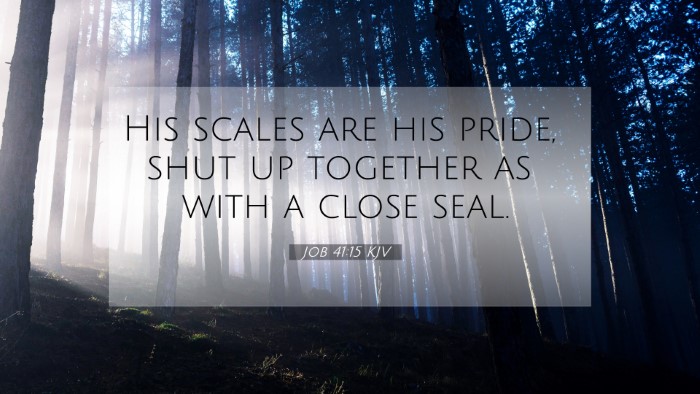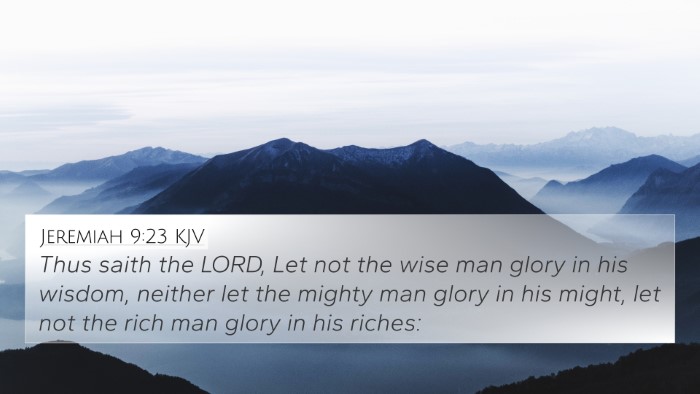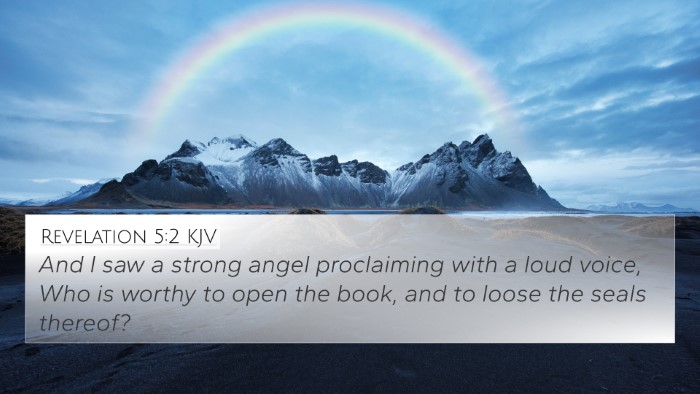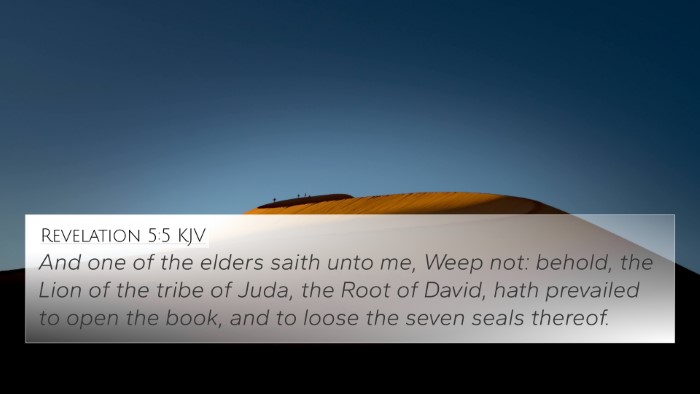Understanding Job 41:15
Job 41:15: "His back is made of rows of shields, shut up closely together as with a seal."
This verse describes the creature referred to in Job 41, commonly understood to be Leviathan. The imagery evokes a sense of immense power and formidable protection, emphasizing the creature's impenetrable armor.
Insights from Public Domain Commentaries
Matthew Henry: Matthew Henry notes that the description of Leviathan serves to illustrate God’s creative power and sovereignty. The "rows of shields" symbolize strength and the idea that no weapon can penetrate God’s creation when it is within His power. Henry indicates that this creature is a metaphor for the adversities faced by man, impossible to conquer by human means alone.
Albert Barnes: Albert Barnes elaborates on the impenetrable nature of Leviathan. He asserts that these "rows of shields" indicate the creature's resilience and superiority in battle. Barnes correlates this with God’s might, showcasing that it would require divine intervention to overcome such formidable creatures — a reminder of God’s omnipotence in all creation.
Adam Clarke: Adam Clarke focuses on the symbolic intent of the verse, focusing on Leviathan as representative of chaos and evil in the world. He notes that the shields may represent the defenses of the righteous against adversity. Clarke suggests that the description serves as a warning about attempting to challenge God’s authority or the forces He wields in nature.
Bible Cross-References
- Psalm 74:14: "You crushed the heads of Leviathan; you gave him as food for the creatures of the wilderness." - This connects to God's dominion over chaotic forces.
- Isaiah 27:1: "In that day the Lord will punish with his sword—his fierce, great and powerful sword—Leviathan the gliding serpent; Leviathan the coiling serpent; he will slay the monster of the sea." - Indicates God’s power over Leviathan.
- Job 9:13: "God would not turn back his anger; the allies of Rahab cowered at his feet." - Mentions Rahab as a symbol of chaos, paralleling Leviathan.
- Revelation 13:1: "And I saw a beast rising out of the sea, with ten horns and seven heads, with ten diadems on its horns and blasphemous names on its heads." - This ties the imagery of sea monsters to end times adversities.
- Psalm 104:26: "There the ships go to and fro, and Leviathan, which you formed to frolic there." - Shows Leviathan as a part of God’s creation, emphasizing His control over chaos.
- Job 40:15-24: The previous chapter provides further descriptions of the creatures God has made and reaffirms His control over all creation.
- Proverbs 3:19: "By wisdom the Lord laid the earth's foundations, by understanding he set the heavens in place." - Emphasizes God’s wisdom in creation, tying it to the power illustrated in Job 41.
- Luke 8:24: "The disciples went and woke him, saying, 'Master, Master, we're going to drown!' He got up and rebuked the wind and the raging waters; the storm subsided, and all was calm." - Illustrates Jesus's power over chaotic natural forces.
- Mark 4:39: A reaffirmation of Christ's authority over the storm, resonating with God's dominion seen in Job.
- Romans 8:37: "No, in all these things we are more than conquerors through him who loved us." - Ultimately, the strength that believers have through God correlates to the victory over chaos represented by Leviathan.
Thematic Connections
The themes present in Job 41:15 relate closely to the broader Biblical narrative regarding God's sovereignty, the existence of evil, and the struggles of humanity against seemingly insurmountable odds. This verse serves as a reminder to believers of God's control and the assurance that, despite the chaos represented by Leviathan, God reigns supreme.
Through cross-referencing and comparative analysis between these passages, we can better understand the unity of God's message throughout the Scriptures. Utilizing tools for Bible cross-referencing can significantly enhance our understanding and study of such themes, revealing deeper insights and connections.
Conclusion
Job 41:15 offers a rich tapestry of meaning through its vivid imagery and thematic implications. By examining public domain commentaries alongside inter-Biblical dialogues, we uncover profound insights regarding God's sovereignty and the nature of chaos in the world.
Engaging in scriptural cross-referencing enhances our understanding of the Bible, allowing us to make connections between disparate passages and uncovering the thread of divine sovereignty that runs throughout both the Old and New Testaments.
